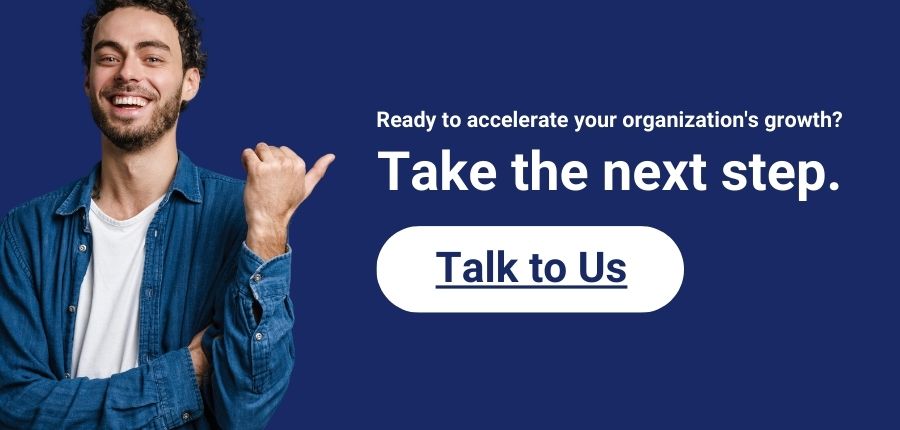In the dynamic landscape of Learning and Development (L&D) in an organization, coaching in Learning & Development has emerged as a powerful tool, bridging the gap between knowledge acquisition and practical application. Unlike traditional training methods that focus solely on imparting information, coaching dives deeper into individual development, fostering growth and enhancing performance.
“Coaching is unlocking people’s potential to maximize their own performance. It is helping them to learn rather than teaching them.” – Sir John Whitmore
With learning pathways becoming self-directed, informal, and customized, modern learners are adopting technical advancement. With more and more responsibility on them, support is important to keep them focused and enthused. This is where a coaching approach comes in.
L&D professionals play a significant role in creating a culture of continuous learning and development. They engage in coaching to support employees’ growth, act as role models, and align coaching initiatives with organizational goals.
Table of Content:
- Introduction to Coaching in Learning & Development
- Key Benefits of Coaching in Employee Growth
- How Coaching Enhances Learning Outcomes
- Coaching vs. Traditional Training Methods
- Building a Coaching Culture in Organizations
- Measuring the Impact of Coaching in L&D
- Conclusion: Integrating Coaching for Sustainable Growth
So how do coaching as an intervention plays a crucial role in shaping the learning journey of individuals within organizations?
Personalized Development
One of the key benefits of coaching is its personalized approach. Rather than adopting a one-size-fits-all training strategy, coaching sessions are tailored to the specific needs, goals, and challenges of each individual. This personalized attention allows for targeted skill development, addressing areas where employees require the most support. Whether it’s improving communication skills, enhancing leadership abilities, or navigating complex situations, coaching provides a customized roadmap for personal and professional growth.
Continuous Learning
In today’s fast-paced world, continuous learning is imperative for staying relevant and competitive. Coaching fosters a culture of lifelong learning by encouraging individuals to reflect on their experiences, learn from mistakes, and adapt their behaviors accordingly. By regularly engaging in coaching sessions, employees are motivated to seek out new knowledge, explore innovative solutions, and evolve with changing industry trends. This continuous learning mindset not only benefits individuals but also contributes to the overall resilience and adaptability of the organization.
Performance Enhancement
Coaching goes beyond just acquiring knowledge; it focuses on translating that knowledge into actionable strategies for improved performance. Through constructive feedback, goal setting, and accountability mechanisms, coaches empower individuals to unleash their full potential. By identifying strengths and areas for improvement, coaching interventions enable employees to maximize their contributions, drive innovation, and achieve optimal results. This performance-centric approach not only benefits individuals but also enhances organizational productivity and success.
Cultivating Leadership
Effective leadership is vital for driving organizational growth and fostering a positive work culture. Coaching plays a pivotal role in cultivating leadership skills at all levels of the organization. Whether developing emerging leaders or refining the capabilities of seasoned executives, coaching interventions help individuals unlock their leadership potential. By nurturing qualities such as emotional intelligence, decision-making, and strategic thinking, coaches contribute to the development of confident, inspiring leaders who can navigate challenges and inspire teams towards shared goals.
Building Resilience and Engagement
In today’s rapidly evolving business environment, resilience is a critical asset. Coaching equips individuals with the tools and mindset to navigate uncertainties, overcome obstacles, and bounce back from setbacks. This resilience not only enhances individual well-being but also contributes to a more resilient and agile organization. Furthermore, coaching fosters high levels of engagement by creating a supportive environment where employees feel valued, heard, and empowered. Engaged employees are more motivated, productive, and committed to achieving both personal and organizational success.
The Impact on Employee Retention and Satisfaction
Coaching also have a significant impact on employee retention and satisfaction. When employees feel supported and empowered through coaching, they are more likely to stay engaged and committed to their roles. This, in turn, reduces turnover rates and creates a more stable and motivated workforce. By addressing challenges and providing personalized development opportunities, coaching contributes to a positive employee experience, leading to higher job satisfaction and loyalty.
Alignment with Organizational Goals
Another crucial aspect of coaching in Learning & Development is its alignment with organizational goals. Effective coaching programs are designed with a clear understanding of the company’s objectives, values, and vision. Coaches work closely with L&D teams to ensure that coaching interventions directly contribute to achieving strategic business outcomes. Whether it’s enhancing leadership capabilities, driving innovation, or fostering a culture of continuous improvement, coaching initiatives are aligned with the broader goals of the organization.
Leveraging Technology for Scalability
In today’s digital era, technology plays a vital role in scaling coaching initiatives. Virtual coaching platforms, online resources, and digital tools enable Learning & Development teams to reach a larger audience and facilitate coaching interactions across geographies and time zones. By leveraging technology, organizations can create scalable and cost-effective coaching that cater to the diverse needs of their workforce. This blend of human expertise and technological innovation enhances the accessibility and effectiveness of coaching interventions.
Building a Feedback Culture
Coaching thrives on feedback—it’s a two-way street where both coaches and coachees provide valuable insights and reflections. L&D teams play a crucial role in fostering a feedback culture within the organization. By encouraging open communication, constructive feedback, and continuous improvement loops, L&D professionals create an environment where coaching becomes ingrained in the organizational DNA. Regular feedback mechanisms also help assess the impact of coaching, identify areas for enhancement, and drive ongoing learning and development.
Emphasizing Continuous Learning
Lastly, coaching reinforces the concept of continuous learning as a lifelong journey. L&D teams promote a growth mindset within the organization, emphasizing the value of learning, unlearning, and relearning in today’s dynamic business landscape. Coaching interventions serve as catalysts for continuous improvement, encouraging individuals to seek feedback, embrace challenges, and pursue personal and professional growth opportunities. This culture of continuous learning not only benefits individuals but also strengthens the overall resilience and adaptability of the organization.
By considering coaching as a powerful intervention in Learning and Development, your organization can invest in your most valuable asset—your people—and pave the way for sustained success in an ever-evolving business landscape. Coaching is not just about imparting knowledge; it’s about unlocking potential, driving performance excellence, and fostering a culture of continuous learning and growth.
Types of Coaching in Learning & Development (L&D)
Coaching in Learning & Development encompasses various approaches tailored to meet specific needs and objectives. Understanding the different types of coaching can help organizations design targeted interventions that align with their learning strategies and employee development goals. Here are some common types of coaching used in L&D:
- Performance Coaching: This type of coaching focuses on improving individual performance in specific job roles or tasks. Coaches work with employees to set performance goals, identify areas for improvement, and develop action plans to enhance job performance.
- Leadership Coaching: Leadership coaching is geared towards developing leadership skills and competencies at all levels of the organization. Coaches help leaders enhance their communication, decision-making, strategic thinking, and team management abilities.
- Career Coaching: Career coaching assists employees in navigating their career paths, identifying career goals, and developing strategies to achieve them. Coaches provide guidance on skills development, career transitions, and professional growth opportunities.
- Skills-Based Coaching: This type of coaching focuses on developing specific skills or competencies relevant to job roles or projects. It could include coaching on communication skills, time management, conflict resolution, or technical skills required for particular roles.
- Executive coaching: Executive coaching is tailored for senior leaders and executives, focusing on strategic leadership, vision setting, decision-making, and driving organizational change. Coaches work closely with executives to enhance their leadership effectiveness and achieve business objectives.
- Team Coaching: Team coaching aims to improve team dynamics, collaboration, and performance. Coaches work with teams to enhance communication, problem-solving, decision-making, and goal alignment, fostering a more cohesive and productive team environment.
- Group Coaching: Group coaching involves coaching sessions with multiple participants, focusing on common themes or developmental areas. It encourages peer learning, collaboration, and shared insights among participants.
- Wellness Coaching: In addition to professional development, wellness coaching focuses on employee well-being, stress management, work-life balance, and overall health and wellness. Coaches help employees adopt healthy habits, manage stress, and improve their overall quality of life.
By understanding and utilizing these different types of coaching in L&D, organizations can create comprehensive coaching programs that address diverse learning needs, foster skill development, and drive individual and organizational growth.
Creating Personalized Coaching Programs
There’s a common misconception that only struggling employees need coaching. However, coaching is beneficial for both skilled and less experienced employees, helping them overcome challenges and improve. This is why even top leaders and L&D professionals have coaches; it’s about gaining unique perspectives and solutions to enhance growth rather than basic job training.
A study by the International Coach Federation study, 80% of respondents reported better self-confidence, and 70% reported enhanced work performance. When teams receive proper support, they become more confident and aligned with company objectives, contributing to overall success. This is evident in companies like Coca-Cola and Nike, which use coaching to remain competitive.
Creating personalized coaching programs tailored to employees’ specific needs is crucial in Learning and Development. These programs ensure targeted, relevant, and impactful coaching, benefiting individuals and organizational development alike.
Here’s how to create a personalized coaching program:
Know Your Coaching Objective
Before designing a customized coaching program, it’s essential to define clear objectives. Identify the areas where employees need support and development. This could include improving leadership skills, enhancing communication abilities, fostering teamwork, or addressing specific challenges within departments or teams. By pinpointing the coaching objectives, you can create a focused and effective program.
Make Coaches Familiar with the Work Environment
To ensure the success of coaching programs, coaches should be well-versed in the organization’s work environment, culture, and goals. Select coaches who have a deep understanding of the industry, relevant experience, and a track record of successful coaching engagements. Familiarity with the organization’s challenges, processes, and dynamics enables coaches to provide targeted guidance and support.
Share Details of the Coaching Program
Transparency and communication are key to the success of customized coaching programs. Inform employees about the coaching opportunities available to them, including the objectives, structure, and benefits of the program. Highlight how coaching can help them develop professionally, achieve their goals, and contribute more effectively to the organization. Encourage active participation and engagement by showcasing coaching as a valuable learning and development resource.
Schedule Coaching Sessions
Once the coaching program is designed, schedule regular coaching sessions based on individual needs and preferences. Some employees may require more frequent sessions, while others may benefit from periodic check-ins. Flexibility in scheduling ensures that coaching is accessible and adaptable to diverse learning styles and commitments. Ensure that coaching sessions are conducted in a supportive and confidential environment that encourages open dialogue and reflection.
Leadership Support and Involvement
The success of customized coaching programs also depends on leadership support and involvement. Leaders should champion coaching initiatives, advocate for their importance, and actively participate in coaching sessions when appropriate. By demonstrating a commitment to employee development and continuous learning, leaders set a positive example and reinforce the value of coaching within the organization.
Assess Results and Iterate
After implementing customized coaching programs, regularly assess the results and gather feedback from participants. Measure the impact of coaching on individual performance, skill development, job satisfaction, and overall organizational outcomes. Use data and feedback to identify areas of improvement, adjust coaching strategies as needed, and iterate on the program to enhance effectiveness over time. Continuous evaluation and refinement ensure that coaching programs remain relevant, impactful, and aligned with evolving employee needs and organizational goals.
By following these steps and customizing coaching programs based on employee needs and organizational objectives, L&D professionals can maximize the value of coaching interventions, drive meaningful development, and contribute to a culture of continuous learning and growth within the organization.
















